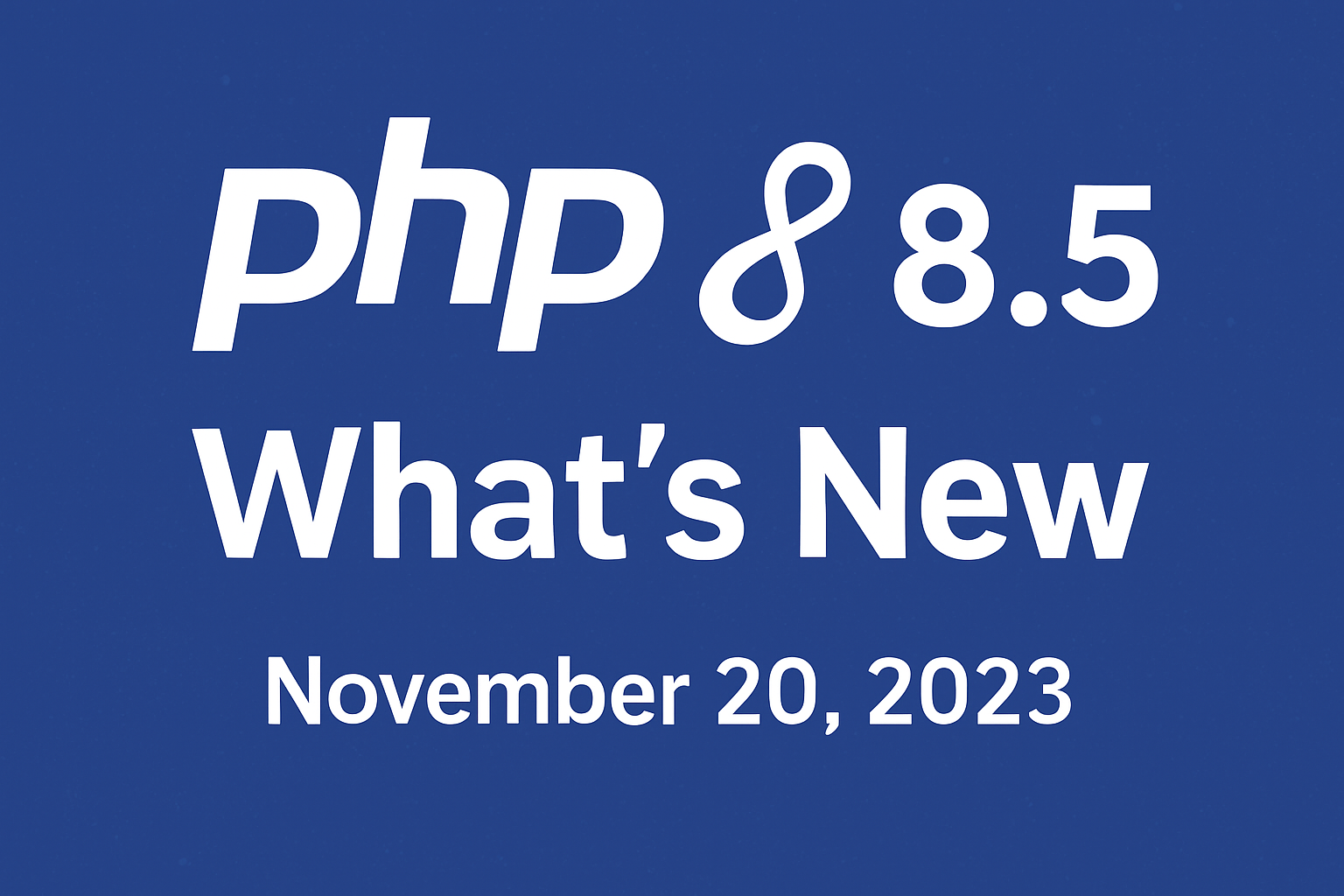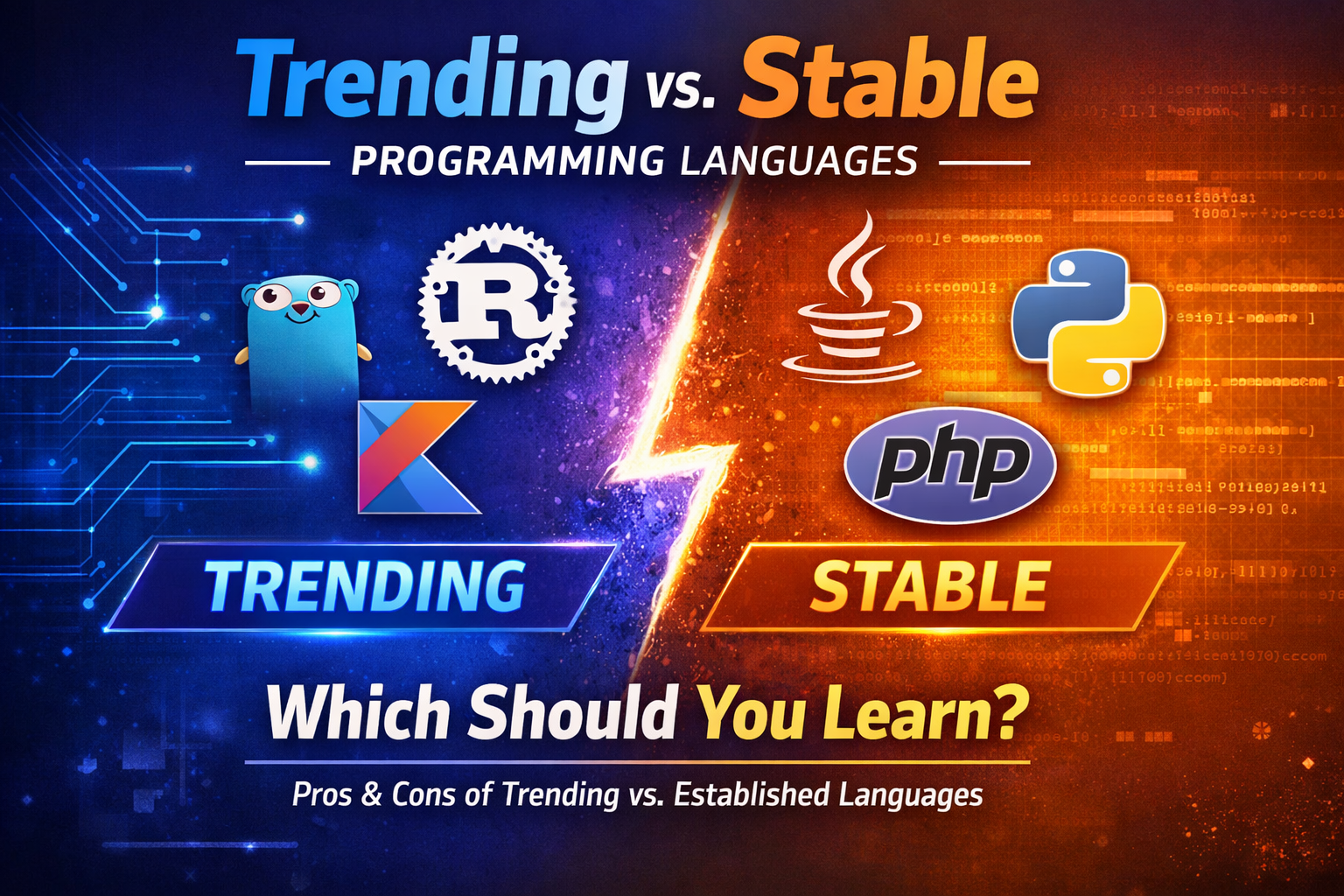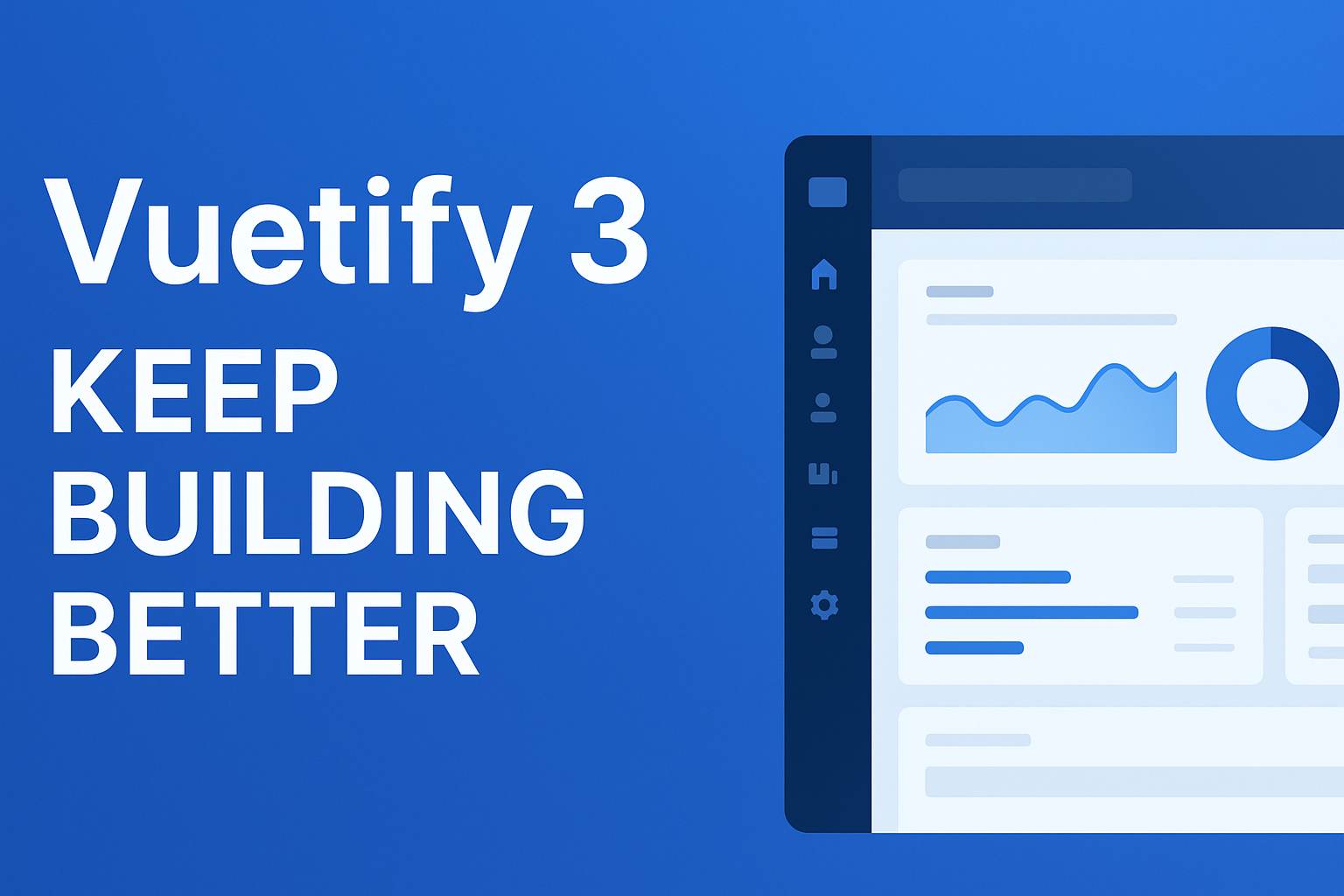PHP 8.5 just dropped, and honestly, this release feels like one of those “quality-of-life” updates that make the language cleaner, safer, and a bit more fun to work with. There’s no earth-shattering feature like JIT from the 8.0 era, but the team has packed in plenty of improvements that you’ll appreciate the next time you’re debugging a messy URL or piping data through function chains.
If you're a backend engineer, tech lead, or someone who loves squeezing more clarity and performance out of your apps, PHP 8.5 has some treats.
Let’s walk through the highlights, casually but with the depth devs like us care about.
🚀 1. The New URI Extension (Finally!)
Let’s be honest: parse_url() has been… fine. But also annoying. It returns arrays with inconsistent behavior, doesn’t follow modern URL specs, and breaks on edge cases.
PHP 8.5 fixes this once and for all with a new, fully RFC-compliant URI extension, powered by strong libraries like uriparser.
Example:
You now get a first-class object with proper methods for manipulation: getPath(), withQuery(), etc. It feels modern, and way safer.
This is going to clean up a ton of legacy code in frameworks and libraries.
🔗 2. Pipe Operator (|>) — Read Code Like You Think
This is probably the most “fun” feature of PHP 8.5. The pipe operator lets you write left-to-right function pipelines without nested calls.
Before:
After, with PHP 8.5:
Cleaner, more readable, and flows the same way your brain works.
This is especially great in data transformation pipelines or utility-heavy code.
🧬 3. “Clone with …” — A Big Win for Readonly / Value Objects
If you use immutable classes or readonly properties, you know the pain of creating “copy with updated field” methods manually.
PHP 8.5 adds:
Example:
This is basically the “with-er pattern” built right into the language.
Less boilerplate. More expressive code.
⚠️ 4. #[NoDiscard] — Catch Silly Mistakes Before They Hurt
Ever written a function that MUST have its return value used?
Example: a validation call, a critical API lookup, or an internal state update.
Now you can mark it:
If someone ignores the result, PHP warns them.
This is a small feature, but incredibly useful in APIs, SDKs, frameworks, and large teams.
🧩 5. Closures & Callables in Constant Expressions
This is one of those “finally!” features.
You can now use static closures inside attributes and other constant contexts.
Example:
It makes attributes much more expressive, especially in frameworks or domain-driven code.
🌐 6. Persistent cURL Share Handles
If your app makes a lot of HTTP calls, this one matters.
Before, cURL share handles would die at the end of the request. No reuse = extra overhead.
Now:
These handles persist across requests, meaning:
-
Faster DNS lookups
-
Faster connection reuse
-
Better performance in high-throughput APIs
Not a flashy feature, but very practical for real-world systems.
🧰 7. New Helpers: array_first() and array_last()
Finally, PHP catches up with what everyone has been writing manually for years.
Simple. Clean. No more:
🔎 8. Better Error Traces & Attribute Improvements
A couple of nice QOL upgrades:
-
Fatal errors now come with backtraces
-
You can put attributes on
const, traits, and more scenarios -
Property overrides can now be validated with
#[Override] -
Static properties support asymmetric visibility
-
Cookies now support “partitioned” settings
All small things that add up in large systems.
⚡ Performance — Don’t Expect Miracles, But It’s Still Better
Here’s the honest truth:
You won’t see massive real-world speed boosts just from upgrading to 8.5.
Benchmarks show that typical Laravel/Symfony/WordPress apps perform about the same as 8.4.
BUT…
-
Exception creation is faster
-
array_map/array_filterare faster -
pack/unpack got optimized
-
SIMD improvements for ARM
-
Tail-call VM makes Clang builds as fast as GCC
-
Opcache file cache works better in containerized systems
So performance is definitely improved — just mostly in specific areas, not across the board.
⚠️ Deprecations You Must Know
A few things are on their way out:
-
Backtick operator (
`ls`) is deprecated → useshell_exec() -
Old casts:
(boolean),(integer),(double)→ use(bool),(int),(float) -
disable_classesINI directive removed -
case;is deprecated → usecase: -
Using
nullas array key triggers warnings -
__sleep()and__wakeup()are “soft deprecated” -
Casting
NANtriggers warnings
If you scan your codebase early, upgrading will be smooth.
🎯 Final Thoughts
PHP 8.5 isn’t a revolutionary release, but it is a very developer-friendly one.
This update focuses on:
-
Cleaner syntax
-
Fewer gotchas
-
Better tooling
-
Safer APIs
-
More expressive language features
-
Smoother performance under load
For teams building modern PHP apps, 8.5 feels like polishing the language we already love using day-to-day.
If you're on PHP 8.2–8.4, upgrading should be easy, assuming you’re not using the newly deprecated features.



